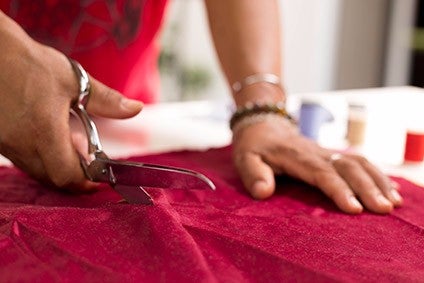
John Lewis, M&S and Next Plc are among a raft of British fashion retail giants to have signed a joint agreement with enforcement bodies to try to combat the exploitation of workers by UK fashion and textile manufacturers.
The retailers, which also include New Look, River Island and Shop Direct, are joining forces to help eradicate modern slavery and to send a strong signal that the fashion and textiles sector is resolved to playing its part in discouraging labour abuse and taking action when it does occur.

Discover B2B Marketing That Performs
Combine business intelligence and editorial excellence to reach engaged professionals across 36 leading media platforms.
The ‘Apparel and General Merchandise Public and Private Protocol’ commits signatories to work together to eradicate slavery and exploitation in fashion and textile supply chains. They have pledged to raise awareness to prevent worker exploitation, protect vulnerable and exploited workers and disrupt exploitative practices and help bring criminals to justice.
Enforcement bodies including the Gangmasters and Labour Abuse Authority (GLAA), Department for Work and Pensions (DWP), Employment Agency Standards inspectorate, Health and Safety Executive (HSE), HMRC, Immigration Enforcement and the Insolvency Service have also signed the document, which is supported by the British Retail Consortium (BRC), UK Fashion and Textile Association (UKFT), and auditing system Fast Forward.
The announcement follows the latest meeting of the Modern Slavery Taskforce, created by Prime Minster Theresa May, which discussed how to better identify and tackle forced labour in business supply chains.
The UK’s multi-billion fashion industry employs tens of thousands of people, which can make its companies vulnerable to unscrupulous providers and criminals who exploit workers for their labour, UKFT says. The partnership aims to enhance efforts to root violations out of supply chains and reassure workers and customers of the efforts being made.

US Tariffs are shifting - will you react or anticipate?
Don’t let policy changes catch you off guard. Stay proactive with real-time data and expert analysis.
By GlobalData“Modern slavery is an abhorrent crime that denies its victims of liberty, and it is disturbing to think that some of the products we buy could have been produced by someone exploited into forced labour,” says Prime Minister Theresa May. “As global leaders in the fight against modern slavery, I am clear that this will not be tolerated in the UK – and our consumers won’t stand for it either. “
She added: “I welcome the action being taken by businesses, which are leading the way in being open and transparent about the modern slavery risks they face, and have pledged to raise awareness to prevent slavery, protect vulnerable workers and help bring more criminals to justice.
“But with Modern Slavery police operations at an all-time high, clearly there is more to do to stamp out this vile crime and prevent criminal groups from operating in the shadows of supply chains to exploit people for commercial gain.”
With the UK textiles industry contributing “billions of pounds” to the economy, GLAA director of operations Ian Waterfield says it is an attractive proposition for unscrupulous employers and criminals who exploit workers.
“The signing of this protocol is a significant step because it sends a clear message of intent from both the industry and law enforcement that exploiting people for their labour will not tolerated. The GLAA is the enemy of illegitimate working practices and criminality, and a friend to legitimate businesses targeted by those who commit exploitation.”
Meanwhile, Adam Mansell, CEO of UKFT, believes a long-term, equitable relationship between retailers and manufacturers will help the UK fashion and textile manufacturing sector grow and develop.
“We also actively encourage consumers to think very carefully about how their fashion and textile products are made. As the costs of raw materials and labour increase, the consumer will need to accept that it will not be possible to continually reduce prices – wherever the goods are made. “
Peter Andrews of BRC adds: “This is an important step in our collaborative efforts to end the ill-treatment of any workers suffering under exploitative employers in UK fashion and textile factories. The responsible businesses signing up to this Protocol demonstrate that relationships with suppliers have to be based on decent working practices. Joint efforts by industry and government are essential if we are to truly eradicate these abhorrent practices.
Nearly three years ago, a study commissioned by the Ethical Trading Initiative (ETI) found “widespread and severe violations of work and employment laws” at garment factories in Leicester, which is at the centre of much of the country’s textile and garment reshoring efforts. And last year, suppliers in the city producing for high street brands were found to be paying workers between GBP3 (US$3.74) and GBP3.50 (US$4.36) per hour – way below the minimum wage.
Bosses at fashion retailers Asos and New Look have been among those calling on British factories to improve worker safety so they can consider sourcing more clothing in the country rather than offshore.





